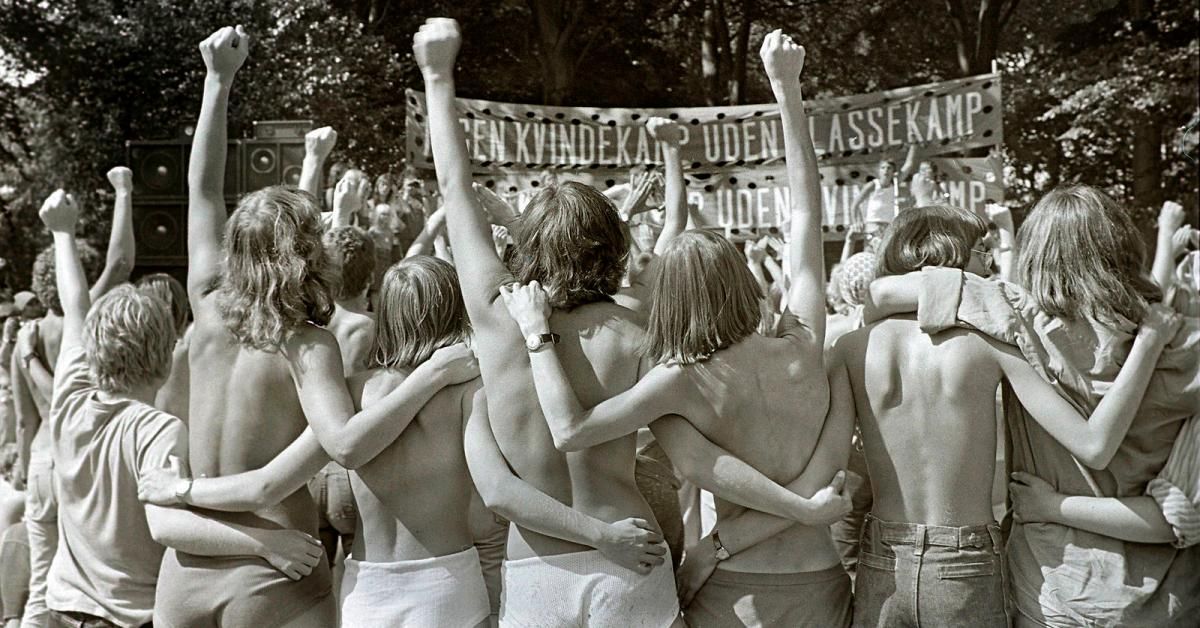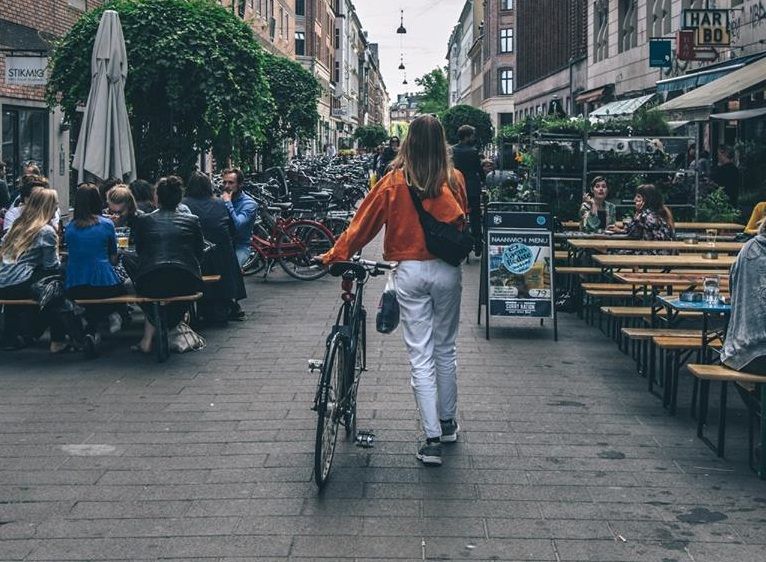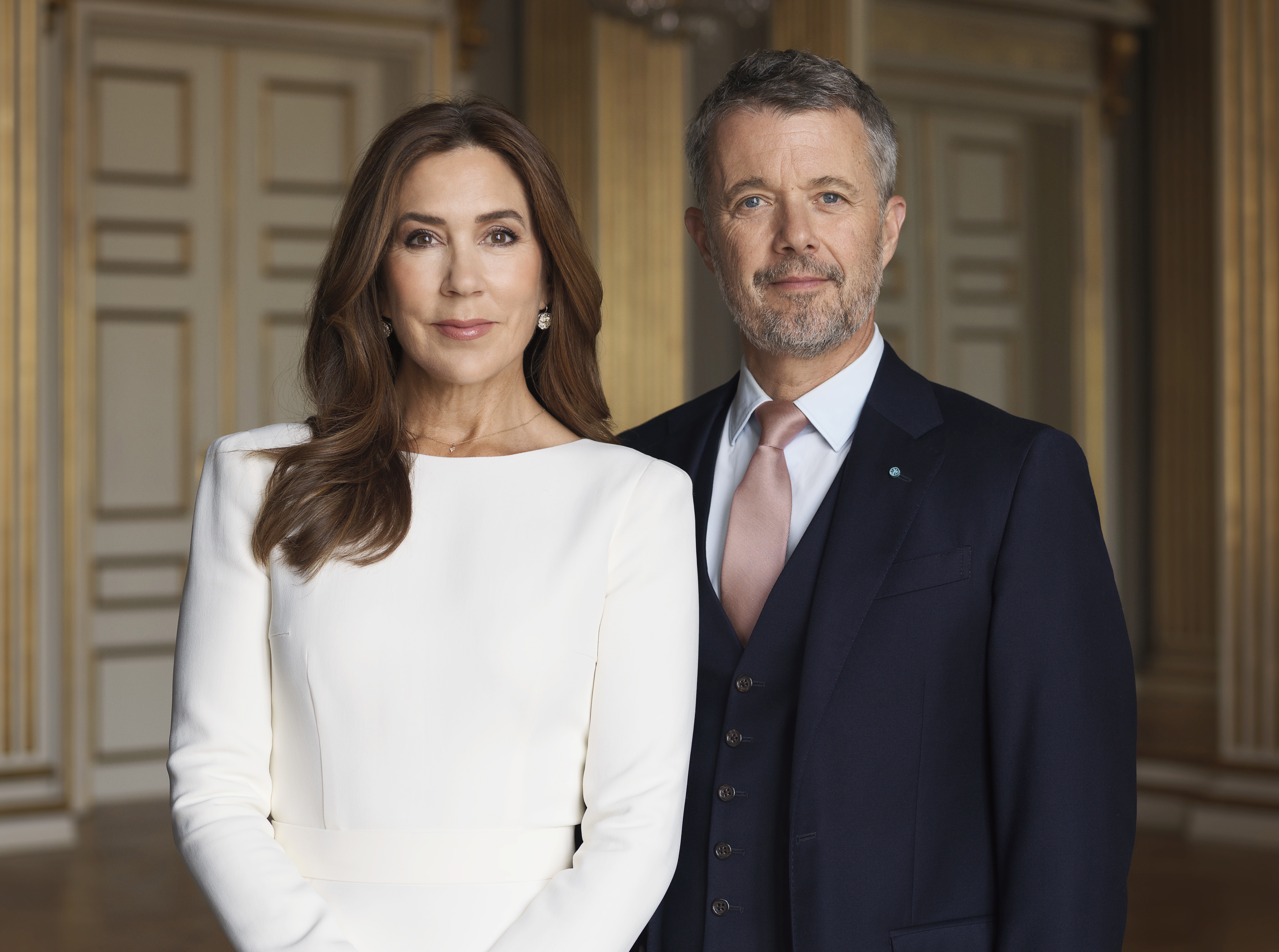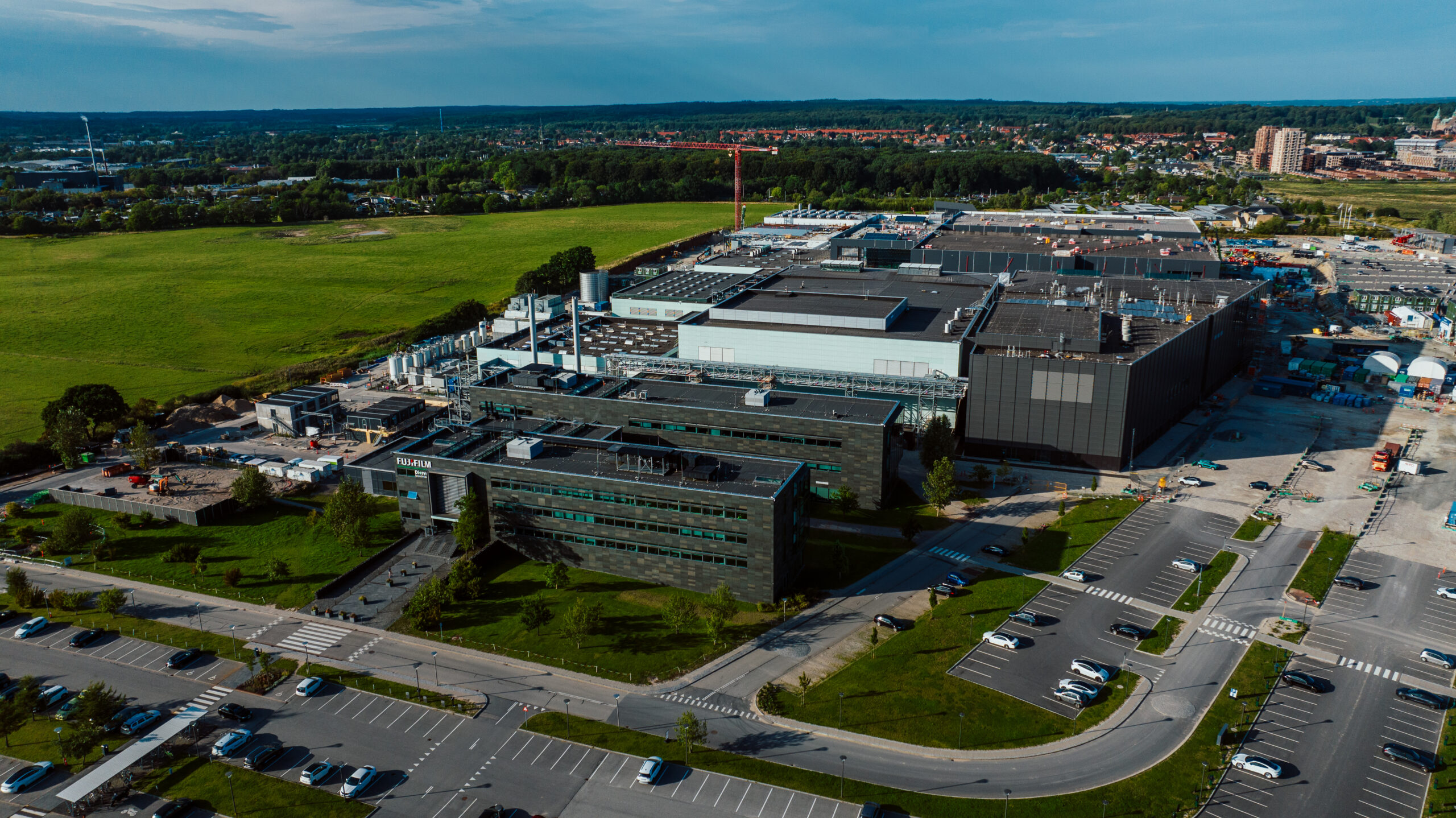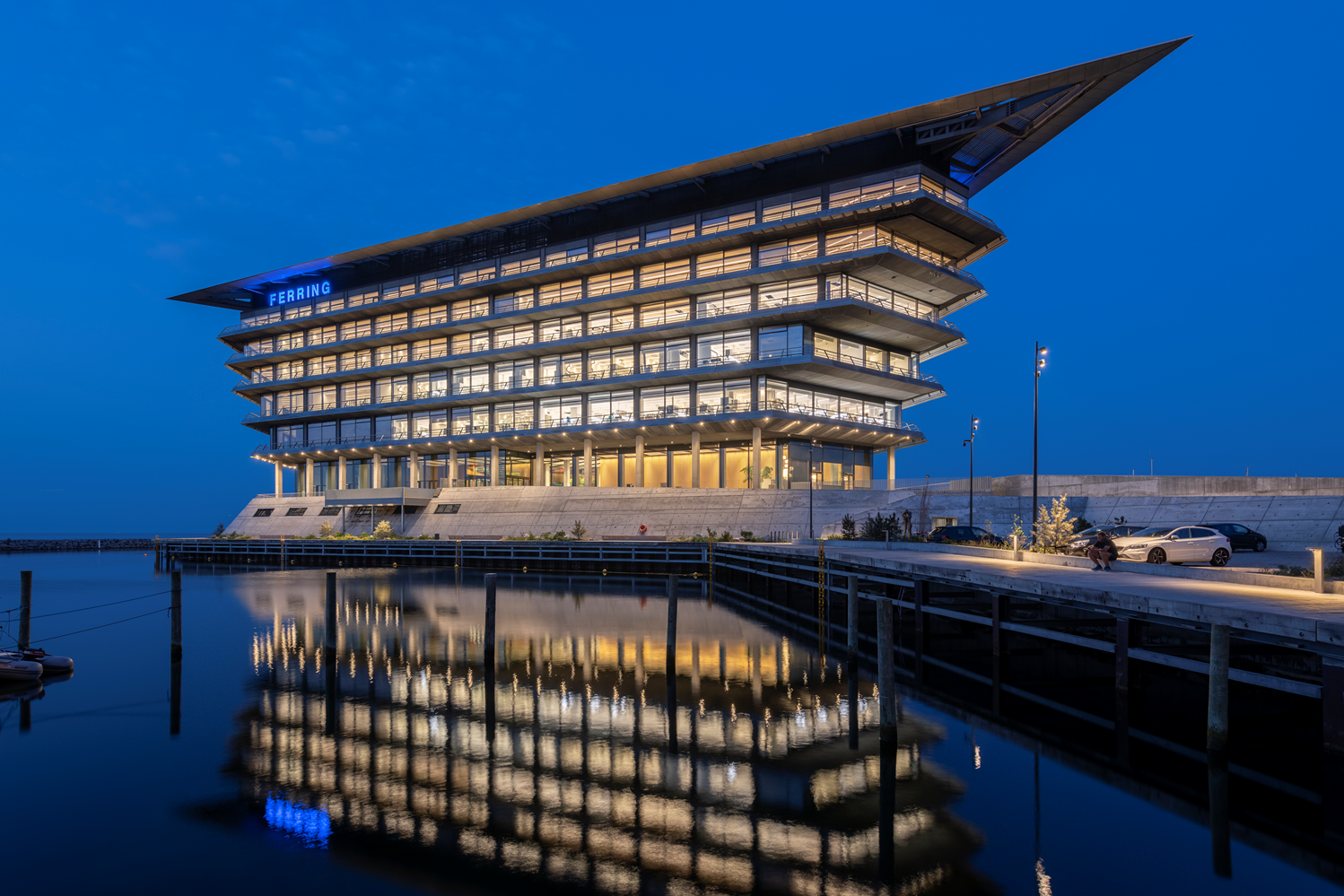Denmark serves as a role model for the rest of the world with its social democratic welfare, narrow gender pay gap, generous parental leave and noteworthy female representation in the government and political sphere. It even has a feminist political party!
The country has made tremendous strides for women’s rights since 1915 – when it officially granted them the right to vote – and today they legally enjoy fundamental freedoms and opportunities.
Denmark is regularly ranked among the best countries for women. In December, the country even criminalised sex without explicit consent in a move hailed by women’s rights activists – about 11,400 women a year are raped or subjected to attempted rape in Denmark, according to the country’s Justice Ministry.
However, not everything is as rosy as it might seem … in fact, something is rotten.
Wolves can whistle
Despite all these positive developments, Denmark is also one of the least feminist nations in the developed world.
As few as one in six Danes consider themselves to be feminist, according to a study conducted by the YouGov-Cambridge Globalism Project in collaboration with The Guardian.
Furthermore, a third believed that wolf-whistling at women in the street is acceptable, and two in five had an unfavourable view of the #MeToo movement.
So why, despite supporting women’s rights to equal opportunities and representation, do Danes hesitate to call themselves feminists and back such groups as the Red Stocking Movement?
Rooted in stigma
The reluctance to embrace feminism is rooted in misconceptions and stigma attached to the word ‘feminism’ and the various meanings it holds for people, contend experts. Besides, many simply think the fight for gender equality is already won.
“I suspect that some Danes are hesitant to label themselves feminists as feminism can carry many meanings or indeed misconceptions [in their eyes]. But if you ask Danes whether they believe in equality between men and women, I believe the vast majority would say yes. The question then becomes: how do we achieve this?” contended Katharina Ó Cathaoir, an Irish PhD scholar and Assistant Professor at the Faculty of Law at the University of Copenhagen (KU).
“This is where people start to disagree: some who consider themselves feminists think that over time the market will eventually create equality. Others want intervention to achieve equality faster, such as creating positions earmarked for women or quotas. The latter can create discomfort among people who generally oppose market regulation.”
Wrong perceptions
Self-proclaimed feminist Frederik Uldall Jespersen, a 25-year-old from Aarhus, thinks that many Danes don’t understand the term ‘feminism’ because it has a lot of meanings.
“It isn’t just one ideology, but lots of different ideologies with different meanings [to everyone],” he affirmed.
“Most Danes, in my opinion, perceive aggressive Marxist women whenever they think of feminism. And lots of Danes think we won the battle back in the ‘70s.”
Jespersen despairs at how Denmark is often regarded as a “utopia” for equality and women’s rights, but in reality many women still have to battle sexism in Denmark a great deal – contrary to what most people think.
“We still deal with a lack of equality and it seems as though lots of people, especially men and older women, don’t understand that females still don’t have the same opportunities when it comes to job offers,” he added.
State feminism to blame
On the other hand, Nischa Don Maak, 36 – the founder of Career Club DK, a community that supports career women in Copenhagen – thinks Denmark has formal equality or state feminism, which means that the public believe in men and women having equal worth and rights. She, however, thinks that this does not mean, in practice, that the latter still have equal opportunities.
“This, I believe, is due to the whole system and structures that historically are built by men and for men. Structural changes take time but we will get there,” she predicted, noting that the wage gap is still 15 percent, only 30 percent of all leaders in the public sector are female, with even fewer, 14 percent, in top management positions or on a board of directors.
“This is partly due to the very long maternity leave we have in Denmark, which women take the lion’s share of, and our traditional ‘women’s’ responsibilities for the household,” she continued.
Maak, who considers herself a cultural feminist, believes that female qualities are the most untapped resource in the world and that they are direly needed along with the capabilities men bring to the table.
Her belief is very much aligned with Danish democratic values of which institutionalised gender equality is a cornerstone.
The role of denialism
KU researchers in their paper ‘Danish women put up with less: Gender equality and the politics of denial in Denmark’ point towards a more deep-rooted problem.
They argue that this phenomenon is due to a “denialism” in Denmark generated by mass media discourses responsible for “vehemently repudiating and invisibilising while male violence” in society.
They affirm that a “convoluted role of gender equality” is highlighted in order to sustain a gender-equal image – and, as a result, the problem does not get the attention it deserves.
“The politics of denial and denialism becomes integral to current social theory, especially in the context of rising global activism against sexual harassment of women (such as the #MeToo movement), as a range of political actors and agents come forward to deny male aggression and misconduct as sexual violence,” the research states.
In conclusion, it finds that contradictory responses to sexual violence – ranging from the trivialisation of violence (mostly by white men) to the hyper-visibilisation of violence by other men (men from mostly migrant communities) – produce a particular politics of denialism in Denmark.
Challenging the ideals
Atreyee Sen, an associate professor at the Department of Anthropology at KU who is one of the authors of the paper, points out that Denmark, along with many other European nation states, believes that “the welfare state, women’s participation in the labour force, women’s safe use of public space, strong policies in favour of women’s maternity rights, its existing history of feminism, etc” have already created a ‘gender equal’ society
If there is acknowledgement of white male violence and sexual harassment in Denmark – be it the case of Copenhagen Mayor Frank Jensen resigning, or Peter Madsen murdering Kim Wall aboard his submarine – Sen contends that this acceptance challenges the ideal of Danish society being equal and is in effect denialism.
“So if you contest that idea of gender equality, then you are breaking the trust and reciprocity that determines the exceptional nature of so-called progressive societies like Denmark,” concluded Sen.
Problem of violence
The paper elaborates that sexual violence is racialised and is perceived more of an issue in the immigrant communities.
According to Sen, male violence in Denmark is projected onto migrant and ethnic groups and people from ‘backward’, patriarchal cultures (including eastern Europeans) who enter Denmark as migrants, low wage workers and refugees and are “considered to be capable of all kinds of violence, from terrorist attacks to domestic violence and the rape of white women”.
“This racialisation of violence might be a by-product of global Islamophobia, but it is also a specific denial of the white ethnic Danish man being constructed in public life as violent, aggressive, racist or patriarchal,” she maintained.
The European Union Agency for Fundamental Rights (FRA) ranked Denmark as the EU country with the highest occurrences of male physical violence, sexual assault, harassment and stalking of women in 2014.
Danish media wrote off the report as “grotesque”, “misguided” and “untrustworthy” – a response that the KU paper described as a “state of denial.”
#MeToo’s arrival
In August 2020, the Danish #MeToo movement served as a moment of reckoning and raised conversations over the safety of women in workplaces after television presenter Sofie Linde came forward with her experience of sexual harassment. Thousands of women followed suit and shared their accounts of mistreatment, harassment and sexism – a blow to a country considered a “paradise for equality”.
Sen contends that current engagement in the #MeToo debate shows the country might be entering into a different kind of post-feminist phase – one in which it might take a critical stance regarding the myths of gender equality promoted through public opinion and popular culture.
“This kind of post-feminism will involve promoting gender activism to make issues of sexuality, labour, racism, decolonialism, equality in pay and questions of human rights more visible,” she said.
Many women and nation states, continued Sen, think you can fight for gender justice without necessarily attaching your political identities to feminism – for example, you can just be a gender equality activist, without aligning yourself with a particular form of ‘-ism’.
Less obvious to some
Despite the prevalence of denialism, there are international women who have truly found a home and safe haven in Denmark and look pleased with the state of affairs.
Take Lili Boesen Hernandez, for instance, who originally hails from Mexico and is convinced there’s gender equality here.
“Denmark has given me the opportunity to feel safe, feel supported by a loving partner and given me the chance to explore other professional options that I would have never considered while living in Mexico,” she said.
Rebecca De Andradea, originally from Brazil, shared that view. “I am from a country where women are killed every 13 minutes for being women – I feel very safe in Denmark,” she added.
Progya Permita from Bangladesh had a slightly critical view, though.
While she thinks definitely women are better off in Denmark compared to eastern countries and maybe even the USA, their emancipation – attempts at procuring social and economic rights – is inadequate, even though it’s one of the best.
“Looking at Danfoss and ARLA’s gender equality policy for a study of my own project disappointed me. I don’t feel the rules give any privilege to women – rather they need to work harder,” she said.
Room for improvement
In a similar vein, Cathaoir thinks Denmark is ahead of other European countries when it comes to advancing towards gender equality laws, but that the Nordic country isn’t as progressive as one might expect in other areas – especially when compared to Sweden, which has embraced feminism more extensively.
“Take the abortion issue, for example. The right to abortion is only guaranteed to women aged 18 and over and until the 12th week,” she argued.
“If one is aged below 18 and doesn’t have parental consent, or is past 12 weeks, one needs permission from an administrative board.”
In such cases, she contended, you can see that women’s autonomy is not as strongly guarded as you might expect in a country without gender issues.
Cathaoir emphasises that feminism isn’t just about women’s bodies but also about equality in workplaces and at home. It is there that Denmark, like most other countries, has ample room for improvement.
“I fear that feminism has an image problem, not just in Denmark but in many ‘liberal’ countries. There are stereotypes about who is or is not a feminist. Furthermore, we need to have some honest conversations about what true equality would mean,” she concluded.

